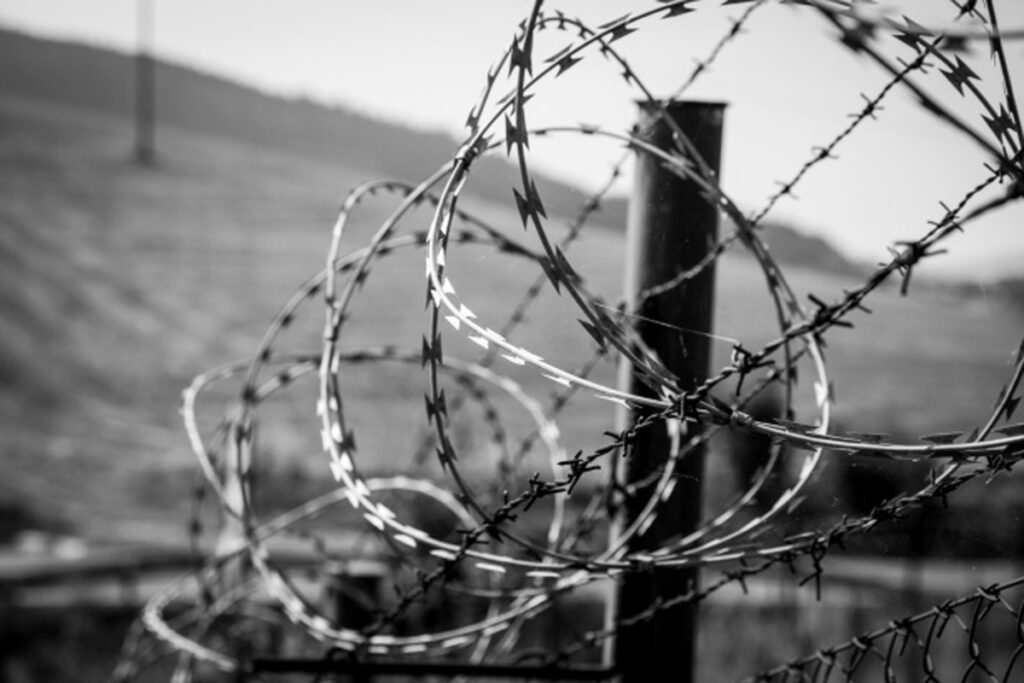Clare Doyle, of the Committee for a Workers’ International (CWI – the socialist international organisation to which the Socialist Party is affiliated) spoke to socialists and worker activists in Ukraine and Kazakhstan on 25 March about the devastating impact of war, not only on lives and infrastructure, but also its political effects on the workers’ movement.

Ukraine
Half of Ukraine’s capital city, Kyiv, is now wrecked by shelling and bombing from Russian forces. I spoke to ‘V’ a trade union and political activist from that city. He has succeeded in taking his wife and son from the crowded school basement they shared with no less than 300 people. Now they have one room in a hut of a ‘Pioneer’ youth camp in the North-West of Ukraine.
“A number of organisations have been banned, broken up,” he tells me. “But they are mostly pro-Russian groups. Trade unionists and political people have not been able to form separate units.
“We have never been able to officially form a party. You had to have ten thousand signatures to do that! We had about 1,200 at one stage in our union.
“As a war-time ‘necessity’, all our TV news channels have been amalgamated into one. We do get news and videos through social media of one sort or another, including cartoon films for the children.”
We discussed the prospects for the war. V commented that Ukraine’s president Zelensky had clearly dropped the aim of joining Nato, the Western military alliance. There would be a compromise, but it was obviously not clear what and when. Already 800,000 refugees have left Luhansk which, along with Donbas, is one of the hotly disputed regions between the regimes of Russia and Ukraine.
The Russian army is reported to have lost at least 15,000 fighters on the battlefield. Conscription is for two years in Russia. “Of course, there will be great distress when the young men fail to return home.”
Support for Putin in Russia remains high with all the state-controlled media propaganda about ‘fascists and Nazis ruling Ukraine’. The Russian-led USSR lost 20 million people in World War Two following the Nazi invasion, and therefore invoking the spectre of ‘Nazism’ undoubtedly affects public consciousness.
There are ‘Azovtsi’ and ‘Banderovtsi’ (far-right groups) in the Ukrainian army, but the majority of Ukrainians see Russians as ‘family’. You have the military horror and the deep shock and disappointment.
V and I spoke about the defection from Russia last week of Anatoly Chubais – chief architect of the rapid transition to market capitalist relations in the early 1990s. We also spoke about the area in southern Ukraine where the revolutionary leader Leon Trotsky spent his childhood and student days now coming under bombardment.
Odesa, in the sights of Putin’s forces, is an historic and beautiful city. It is the scene more than a century ago of a major battle and mutiny in the Russo-Japanese War of 1905 – a defeat that led to revolt and revolution in Tsarist Russia.
Kazakhstan
Andrei in Astana, the largest city in Kazakhstan, speaks of a major fuel shortage developing because of a broken pipeline.
But the authoritarian Tokayev government is not likely to put up the price of fuel, given what happened last time he tried in January this year when a mass uprising followed a doubling of LNG supplies at the pumps!
Nor is the shaky dictatorship likely to accede to any demand from Putin to supply young men from Kazakhstan for his war in Ukrainian as pay-back for Russia’s military ‘assistance’ in January to quell the uprising.
Andrei speaks of ‘Communists’ in the Russian Duma (parliament) and in the Moscow City Duma urging Russian forces be sent to “retake Kazakhstan!” and bring it back within the borders of the old USSR (now defunct for over 30 years). “This is by no means aimed at re-establishing a workers’ state of any kind!”, says Andrei.
The party of veteran ‘communist’, Gennady Zyuganov has been a loyal collaborator throughout the process of establishing dictatorial, oligarchic capitalism in what was – long ago – a totally voluntary federation of soviet socialist republics.
The president of Kazakhstan, Kassym-Jomart Tokayev, is torn over relations with Russia, explains Andrei. He lived in Russia a long time and was part of the clique of gangsters at the top. “His broader family and his wealth are in Russia. They are all robbers at the top of society, but thieves fall out!”
Tokayev seems very uncertain about the future – fearful of any new upsurge that could push him aside. His government seems wary of the growth of independent trade unionism and the possible establishment of a workers’ party – especially if it has socialism as its aim.
“The bosses are incompetent, the state-controlled trade unions cover up for them and the government looks to us for ‘advice’! There are plenty of spontaneous walk-outs taking place and some substantial strikes,” says Andrei.
The cessation of the ghastly war in Ukraine, when it comes, will open up a period of turmoil, of reappraisal and of workers’ struggling to build strong, independent unions and socialist parties in Ukraine, in Kazakhstan, and in Russia itself.








